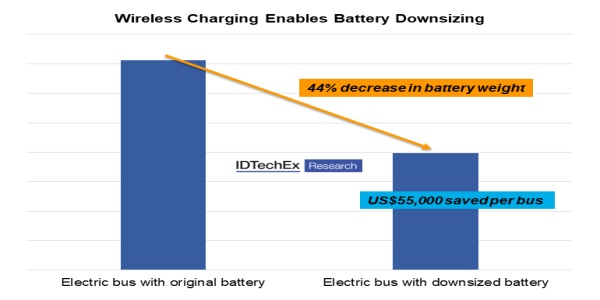Here's a wireless charging that MAY make sense
Because buses are not phones.
Electric cars are… not exactly so good as they say. Electric buses for urban public transit would be much better, but still have a serious problem, at least in certain cases.
That problem is easy to describe: charging electric buses as private cars, that is overnight when they idle in depots, would be a real waste. But what else could transit authorities do, whenever the daily operating range of their buses exceeds the real-world range that its driver (human or software, it’s the same) is able to achieve?
At the moment, there are only two answers to this question, both far from optimal: purchase buses with bigger batteries, or purchase MORE buses. As in “spend and pollute MORE than you should”.
Opportunity charging to the rescue

Recent analyses show that spending more money on buses, and maybe even more on fully charging them during peak hours, is not the only alternative, at least for public buses.
Those vehicles may also go for “opportunity charging”, that is charging every time the opportunity arises, even if it’s just a few minutes at every stop, instead of charging it in full all at once.
At least on paper, that is, transit authorithies may very soon have the option to install automatic, wireless charging equipment authorities at every bus stop, or in some cases right below road level for charging while driving, that would keep the buses always charged, transparently for their users!
The technical details about this kind of solutions are in a report titled “Wireless Charging Market for Electric Vehicles 2023-2033: Technology, Players and Forecasts”.
I do hope that this technology takes hold. In general, there is too much waste thanks to “useless wireless”, but in these are wireless charging that should exist, unlike those in “smart” phones.